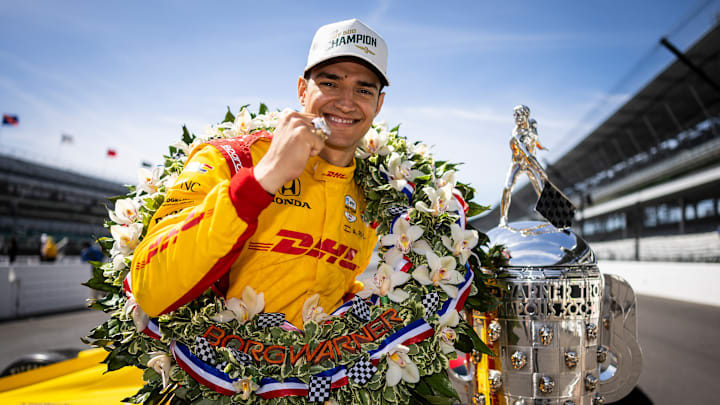On Sunday, Spain's Alex Palou clinched his third consecutive (and fourth overall) NTT IndyCar Series championship in the Bitnile.com Grand Prix at Portland International Raceway, with two full races still left in the 2025 season.
Palou, who is already an all-time great, is in the midst of the best campaign of his career with eight wins in 15 races, including the Indy 500 for his first oval win. At this point, some deeper questions need to be asked: is what he's doing healthy for the sport?
Generally, the answer is that yes; it is good to have a rabbit who the rest of the field is chasing. It raises the standard for everybody else, and it makes winning mean more. When anybody can be special, then nobody is special.
In Palou's case, though, it doesn't even feel like anybody else has a chance anymore. And as a result, many fans have been left in a state of total apathy.
The rest of the IndyCar field needs to catch up with Alex Palou in a bad way
It must be first pointed out that Palou is doing nothing wrong. It's not his job to let anybody else win. It's the rest of the field's job to keep up. They are failing, consistently, and he and his No. 10 team are capitalizing. Kudos to him. He's the best in the business, and at this point, one of the best ever.
However, it can't be ignored that the more he wins, the less interesting IndyCar becomes. He's not exactly the type of larger-than-life personality who draws eyes to the sport, and he's not particularly exciting to watch.
Add to that the fact that he has every team-related advantage in the book, and it's grown boring to see the same guy win over and over again in such a fashion where he never even faces any challenges on the track.
The most obvious recent comparison to Palou's currently run in American motorsports is that of Jimmie Johnson's five straight NASCAR Cup Series championships between 2006 and 2010, and seven total.
But even Johnson wasn't inevitable to this degree. All of his titles came down to the season finale. In several of them, he had to come from behind in points in the last few races. There were years when his team wasn't the best, and he had to straight-up take it from the field.
For the past three seasons, Palou and his team have always been the best. On the average weekend, he unloads with the most speed, wins the pole, then runs away and hides.
If not, then his strategist Barry Wanser outsmarts the competition. Worst-case scenario, such as on Sunday, he has a "good points day" while his biggest rival's car breaks down. His podium finish was his 11th best finish 15 races this year. He's turned IndyCar into American Formula 1.
Again, it's not Palou's fault that he's really good at driving a race car. But for the sake of IndyCar's growth, the field needs to figure out how to beat him.
In any sport, it's the years when the dynasty doesn't win that makes it mean more when they do. It's the years when Eli Manning's New York Giants beat Tom Brady's New England Patriots. It's when Dirk Nowitzki and the Dallas Mavericks upset LeBron James' Miami Heat superteam. It's when Johnson's No. 48 group collapsed in the final two races of the 2012 season and Brad Keselowski took home the title.
Competition makes everybody stronger. Iron sharpens iron, and right now nobody is sharpening Alex Palou.
